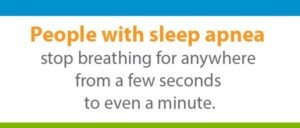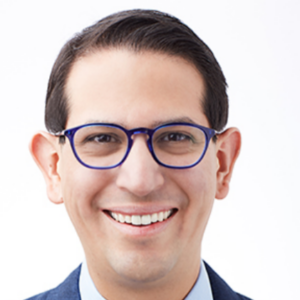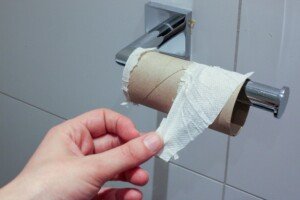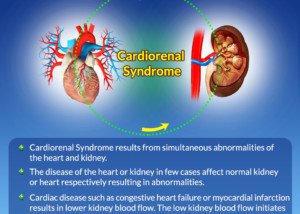Are you getting up several times overnight to urinate and wonder if this means a heart problem?
Waking up more than once a night to pee is not normal. This is called nocturia.
Nocturia has a number of causes. There are three types:
• Low urinary output but a strong urge that wakes up the sleeper. This is a reduced bladder capacity that occurs only during sleep. Voiding, even if it’s a small amount, provides relief.
• High urinary output. The bladder simply gets full during sleep. The urge to urinate is based on a high volume of urine rather than an overactive bladder. This is called polyuria.
• The patient suffers from both conditions.
Those who have risk factors for heart disease may wonder if they’ve finally developed the condition since they keep having to get up in the middle of the night to void.
Heart Disease
There are different kinds of “heart disease,” but two of the most common forms are coronary artery disease and chronic (often called congestive) heart failure.
In the first, the arteries have blockages. In the second, the heart’s pumping ability is reduced.
“Patients with congestive heart failure tend to accumulate an excessive amount of fluids in their body,” says Carlos González Quesada, MD, FACC, attending cardiologist with Cedars-Sinai Medical Center and a cardiologist with Cardiovascular Medical Group of Southern California.
“This water eventually accumulates in the legs, abdomen and lungs. This is the reason why patients will develop swelling of the lower extremities, abdominal fullness and shortness of breath.”
There are also cases in which the fluid retention (edema) is only in the legs. The patient may not even be aware of this. Edema can also be more difficult for the layperson to spot if he or she is overweight and thus has excess fat in the legs.
“To improve the symptoms, doctors prescribe diuretics such as furosemide, bumetanide, torsemide, etc.,” says Dr. Quesada.
“These medications will increase the filtering capacity of the kidneys and accelerate the excretion of extra water.
“If diuretics are given in the evening or at night, it is likely that the patient will wake up several times during the night to urinate.
“This can be avoided by instructing patients to limit their fluid intake and to take their diuretics early in the morning and/or during the afternoon.
“However, it is unlikely that patients with congestive heart failure will develop nocturia in the absence of diuretics.”
Doesn’t more fluid retention mean more peeing?
Since chronic heart failure causes edema (fluid retention), wouldn’t this result in a greater need to urinate while one’s asleep – even if they’re not on diuretics, since the body should want to get rid of all that excess fluid?
“Actually, the opposite happens when patients develop heart failure,” says Dr. Quesada.
“They develop something called cardiorenal syndrome.
“In this situation, the venous pressure increases causing venous congestion.
“In this setting, the arterial perfusion to the kidneys is reduced (the arterial blood can’t get into the kidney capillaries because the pressure in the renal veins/inferior vena cava is elevated).
“In this setting, they have decreased urinary output. Eventually, they produce less urine.”
To put this in layperson’s terms, the kidneys require a lot of blood for optimal functioning. About 20% of cardiac blood flow goes to the kidneys.
When the heart’s pumping ability is reduced (heart failure), the kidneys are affected.
Poor kidney function means less urine production.
Cardiorenal syndrome means that the situation loops back on itself.
• Less blood to the kidneys means less urine production to expel toxins from the body.
• These toxins build up in the bloodstream and affect the heart (because the heart requires blood).
• This worsens the heart.
• A worsened heart pumps less blood to the kidneys.
The Condition that Affects the Heart and May Cause Excess Urine Overnight
If obstructive sleep apnea (which can affect women and non-overweight people) goes untreated for long enough, this can harm the heart.

It’s a risk factor for high blood pressure and chronic heart failure.
Obstructive sleep apnea can lead to polyuria overnight.
This isn’t directly the result of impaired heart function.
It’s the result of OSA’s chain reaction of events during sleep that trick the kidneys into thinking there’s fluid overload (when there actually isn’t).
Under this ruse, the kidneys produce excess urine.
As for coronary artery disease, plaque buildup will not cause trips to the toilet, but can cause chest pain that wakes the individual.
 Dr. Quesada is board certified in internal medicine and cardiovascular diseases, with subspecialties in general cardiology plus interventional and structural cardiology. He evaluates and treats many conditions including shortness of breath, chest pain, coronary blockages and clot disorders.
Dr. Quesada is board certified in internal medicine and cardiovascular diseases, with subspecialties in general cardiology plus interventional and structural cardiology. He evaluates and treats many conditions including shortness of breath, chest pain, coronary blockages and clot disorders.
 Lorra Garrick has been covering medical, fitness and cybersecurity topics for many years, having written thousands of articles for print magazines and websites, including as a ghostwriter. She’s also a former ACE-certified personal trainer.
Lorra Garrick has been covering medical, fitness and cybersecurity topics for many years, having written thousands of articles for print magazines and websites, including as a ghostwriter. She’s also a former ACE-certified personal trainer.
.










































